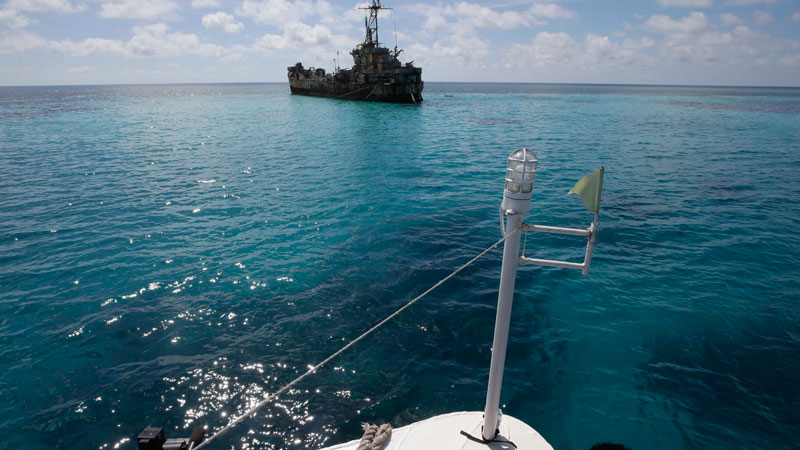MANILA, Philippines–The Philippines wants “continuing stability” in the South China Sea, that’s why it insists on a code of conduct for the rival claimants that will prevent territorial disputes from erupting into armed conflict.
In a news conference on Tuesday, Communications Secretary Herminio Coloma Jr. reiterated that relations between the Philippines and China did not hinge solely on their territorial dispute in West Philippine Sea, part of the South China Sea within Manila’s 370-kilometer exclusive economic zone.
“We still would like to envision a situation where there will be continuing stability in the South China Sea, as we have pointed out its strategic importance not just to regional, but [also] to global commerce and trade,” Coloma said.
Asean’s role
“And we have also emphasized that the South China Sea or the West Philippine Sea does not define the totality of our relations with China, and other countries in the region also view it that way,” he added.
Coloma stressed the role of the Association of Southeast Asian Nations (Asean) as the Philippines’ immediate community in settling the dispute by completing a proposed code of conduct in the South China Sea.
“Our main forum is the Asean and we have always emphasized the importance of Asean centrality. And together with the other Asean nations, we are advocating the fleshing out of the code of conduct. We see this as the important opportunity for institutionalizing peace and stability in the region arising from the disputes in the South China Sea,” Coloma said.
President Aquino pushes for the code of conduct at every Asean summit he attends, Coloma said.
But the regional bloc, which follows the principle of consensus in decision-making, has yet to take significant steps toward the completion of the code.
Coloma said Malacañang was encouraged by the Philippines’ allies’ show of support for its efforts toward a peaceful resolution to the territorial disputes, particularly at the 13th Asia Security Summit in Singapore last week.
“We note that in the 13th Asia Security Summit held over the weekend in Singapore, the participants affirmed the importance of respecting the rule of law as the key to regional stability,” Coloma said.
“The Philippines’ key allies, namely the United States, Australia and Japan, expressed similar views that support our country’s basic position on the importance of seeking a peaceful settlement of disputes,” Coloma said.
China is locked in heated disputes with Asean members Brunei, Malaysia, the Philippines and Vietnam, as well as Taiwan over territory in the 3.5-million-square-kilometer South China Sea, 90 percent of which Beijing claims is part of its territory.
Beijing and Tokyo also contest a group of uninhabited islands in the East China Sea.
World attention
At the security forum in Singapore, US Defense Secretary Chuck Hagel and his Australian counterpart, David Johnston, criticized China for its aggressive claims in South China Sea, which they said was a violation of international law.
Hagel and Johnston urged China to respect the rule of law in settling its territorial disputes with its neighbors.
Lacking military might, the Philippines has brought the dispute to the United Nations for arbitration, seeking to nullify China’s claim to almost the entire South China Sea.
Coloma said that by submitting the case to the UN arbitral tribunal, the Philippines was sending the message that it wanted to “engage the attention and participation of other countries” that were signatories to the United Nations Convention on the Law of the Sea.
“This is our way of calling [the] attention [of] the world,” he said.
